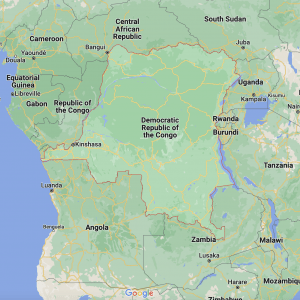Trump Turns to SCOTUS Over Mar-a-Lago Docs, But ‘It Won’t Stop DOJ’
Former President Donald Trump’s legal team on Tuesday escalated the battle over classified documents seized by Federal Bureau of Investigation agents from his Florida residence to the U.S. Supreme Court.
The ex-president’s new filing asks the high court to ensure that over 100 classified documents—among various materials seized by agents who executed a search warrant on Mar-a-Lago in August—are part of a special master review ordered by U.S. District Judge Aileen Cannon, a Trump appointee.
The emergency request follows a three-judge panel of the U.S. Court of Appeals for the 11th Circuit unanimously siding with the Department of Justice (DOJ) last month, enabling federal investigators to use the seized classified documents in an ongoing criminal probe.
Trump’s appeal to the Supreme Court—to which he appointed Justices Neil Gorsuch, Brett Kavanaugh, and Amy Coney Barrett—notably only requests that the special master, Judge Raymond Dearie, review the documents, and does not seek to limit the investigation.
The new filing argues that “the 11th Circuit lacked jurisdiction to review the special master order, which authorized the review of all materials seized from President Trump’s residence, including documents bearing classification markings.”
University of Texas at Austin law professor and CNN analyst Steve Vladeck said in a series of tweets Tuesday that the request is “not entirely laughable” but “I nevertheless think that it’s both (1) doomed to fail; and (2) unlikely to accomplish much even if it succeeds.”
Vladeck suggested that Trump’s argument likely fails on the merits, “but emergency relief is about more than the merits. To vacate a lower court stay, Trump also has to show that the stay is causing him irreparable harm (harm that justifies SCOTUS’s emergency intervention, rather than waiting for a later plenary appeal).”
“And this is what’s most conspicuously absent from his application: any argument about how the stay, by itself, is harming Trump in a way that they can’t ameliorate later,” he continued. “Without meeting that criteria, Trump can’t make out the procedural case for the relief he’s seeking.”
While predicting that the court will reject his request, Vladeck stressed that “what Trump is asking for is very modest. Even if he wins, it won’t stop DOJ from doing anything.”
The expert added that “this is what good but stuck lawyers do to appease bad clients: The jurisdictional argument is narrow, technical, and nonfrivolous. It’s a way of filing something in the Supreme Court without going all the way to crazytown and/or acting unethically.”
“That point reinforces the big takeaway: This is a very specific and narrow request by Trump the merits of which turn on a technical jurisdictional question, but which runs into fatal procedural obstacles long before that. It’s not laughable, but only because it’s small,” he said.
The twice-impeached ex-president “has had decidedly mixed success in earlier efforts to keep his presidential and business records from law enforcement officials and congressional investigators,” The New York Times noted Tuesday.
Originally published at Commondreams.org.












